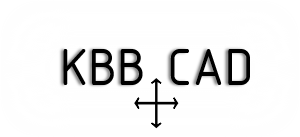 Kevin KRI
Kevin KRI- Posts : 9
Join date : 2018-05-16
 Herringbone tiles/floors addtitional
Herringbone tiles/floors addtitional
Wed Dec 11, 2019 9:44 am
Thanks in advance for your help. I have downloaded a few different herringbone floors/tiles and they don't line up correctly. The pattern doesn't follow through.
Any advice or textures you can share with me?
Lastly, I asked a while ago for making rooms lighter and was advised to use lit appearance on windows. I have done this on the view, is that right?
Lastly what are you all doing for lighting above and below? I've tried using the fluorescent lighting and also making a cubic box with lit appearance but neither seem fantastic..
Any advice or textures you can share with me?
Lastly, I asked a while ago for making rooms lighter and was advised to use lit appearance on windows. I have done this on the view, is that right?
Lastly what are you all doing for lighting above and below? I've tried using the fluorescent lighting and also making a cubic box with lit appearance but neither seem fantastic..
 Re: Herringbone tiles/floors addtitional
Re: Herringbone tiles/floors addtitional
Wed Dec 11, 2019 10:23 am
I've put the one I use below, which lines up perfectly. I've actually got 5 different versions of it all in different colours, I just changed the tone, contrast and brightness in paint and adjusted to suit. I've never had the need to do a tiled herringbone design, but maybe someone else will come along with an option for this?
With regards to the lighting - yes, using the lit appearance on the view is right, you may just need to adjust the diffuse to suit. Daz has a calculator which helps choose the right diffuse to use, although it doesn't seem to work as well in v21.
For ceiling lighting, I just use the default downlight from Articad, but with the textures adjusted to suit better (metal trim to satin steel, black or white and the lens to lit appearance with a diffuse of 0.4) for under cupboard lighting, I've made a few Sensio lights in Sketchup which I favourite and just drag into every design.
In v20 I found using a cubic box was the easiest way to get the lighting to work better, in v21 it doesn't seem to have the same effect and tends to look unrealistic.

With regards to the lighting - yes, using the lit appearance on the view is right, you may just need to adjust the diffuse to suit. Daz has a calculator which helps choose the right diffuse to use, although it doesn't seem to work as well in v21.
For ceiling lighting, I just use the default downlight from Articad, but with the textures adjusted to suit better (metal trim to satin steel, black or white and the lens to lit appearance with a diffuse of 0.4) for under cupboard lighting, I've made a few Sensio lights in Sketchup which I favourite and just drag into every design.
In v20 I found using a cubic box was the easiest way to get the lighting to work better, in v21 it doesn't seem to have the same effect and tends to look unrealistic.

 Mingerz
Mingerz- Posts : 218
Join date : 2017-11-06
 Re: Herringbone tiles/floors addtitional
Re: Herringbone tiles/floors addtitional
Wed Dec 11, 2019 2:11 pm
To make the rooms lighter, I use the stock Windows 10 photo editor and increase the exposure. I also lower the warmth when using wooden floors or earthy wall colours.
 Re: Herringbone tiles/floors addtitional
Re: Herringbone tiles/floors addtitional
Fri Dec 13, 2019 12:35 pm
I use this to now to create flooring in Blender but the process is basically the same for articad. Just export out the colour, height(bump) and specular maps. Maybe someone from articad could advise exact way to do it as i'm sure some of them have experience with Substance software. The wood generator file you need to pay for but the substance player is free to download. Follow the link for videos.
https://www.youtube.com/watch?v=TmYFPGkUYvk&t=27s
As for lighting the new advance render options should make exposure easier! But it's not perfect. Articad really needs real world camera settings built in. Blender is miles ahead in this department.
Below is a render recently done in blender. Each render took just about 1min to render even on my average laptop with the real time render engine Eevee built into blender.


https://www.youtube.com/watch?v=TmYFPGkUYvk&t=27s
As for lighting the new advance render options should make exposure easier! But it's not perfect. Articad really needs real world camera settings built in. Blender is miles ahead in this department.
Below is a render recently done in blender. Each render took just about 1min to render even on my average laptop with the real time render engine Eevee built into blender.


 Re: Herringbone tiles/floors addtitional
Re: Herringbone tiles/floors addtitional
Wed Dec 18, 2019 2:36 pm
1 minute to render.............!!!!!!!! 





Permissions in this forum:
You cannot reply to topics in this forum


